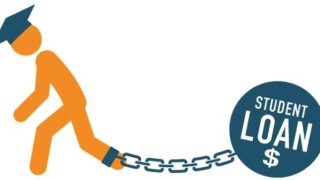Post-secondary colleges and universities are more popular today than ever. More than two-thirds of C/O 2014 high school graduates attended college the following fall in the United States, per the National Center for Education Statistics. Most of these students don’t get full-ride scholarships or have cash-strapped family members willing to cover tuition for them. As such, they’re forced to take out student loans to earn a degree, many wary of the perceived detriments of entering the workforce full-time following high school.
There are nearly 45 million Americans with school loan debt. The most recent statistics from fiscal year 2016 indicates that the average college graduate backpacked more than $37,000 in school loan debt.
United States colleges and their student loans aren’t good for recent graduates in a handful of ways. Let’s peer into five ways that school loans can harm your credit score, history, and report.
Simply applying for school loans can hurt
Although not exclusive to school loans, when people apply for loans or equipment on credit, credit histories are hit with “hard inquiries.” This simply means that someone applied for a loan and the lender wanted to know their financial position and credit history. The more hard inquiries, the lower credit score.
Irregular, untimely payments
Credit scores are calculated by organizations like TransUnion and Equifax, used by persons and entities far and wide to evaluate one’s financial position and potential risk. Regular payments are important for maintaining your credit score, at least for accounts that are actually reported to credit bureaus. School loans are reported, so cross these off your “I don’t haaaave to pay it” list.
They can even cause bankruptcy
Having piles of student loan debt coupled with an inability to pay it off yields a personal financial environment prime for filing bankruptcy. Debt can result is the possibility of bankruptcy and getting lawyers involved, fueling even more debt to the proverbial student-loan-debt fire. Do your best to avoid bankruptcy, as school loan debtors must prove undue hardship to courts of law explaining why they couldn’t pay them. However, this isn’t easy.
Defaulting
When people stop paying debts, they “default” on them. Defaulting on student loans typically takes 90 consecutive days of no payments, which, as referenced above, is quite common, 11.2% of Americans with school loan debt doing so. This absolutely slams credit scores, so do your best to satisfy monthly payments.
May prevent employment
Positions in financial services sometimes auto-filter those with hefty debts out of consideration. As such, school loan balances just may hinder your job search, in turn harming your financial position and related credit score.
Many United States citizens don’t know what to do following high school, kindly opting for college. While college is an effective learning experience for life in general, student loans can cause financial difficulties and stress upon graduation.



